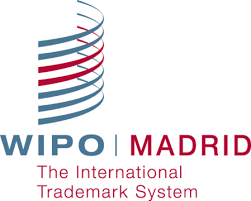 How to file a trademark application abroad?
How to file a trademark application abroad?
There are two options for filing trademark applications abroad:
(1) Thorough the Madrid Protocol;
(2) Direct filing thorough a local lawyer.
Usually, filing through the Madrid Protocol is cheaper than filing thorough a local lawyer, but filing through the Madrid Protocol is more dangerous, because a basic application must be filed in Israel and by virtue of this application, the applications are filed abroad. If the basic application is rejected and the trademark is not accepted for registration in Israel, all the applications abroad will be rejected because they depend on the basic application for 5 years.
Applications filed thorough the Madrid protocol depend on the application filed in Israel, while in the direct filing there is no such dependency.
What is the Madrid Protocol?
On September 1, 2010, Israel joined the Madrid protocol. It was a revolution in the registration of international trademarks, as this protocol allows trademark owners registered in Israel, to register the trademark in all the member states of the protocol (over 80 countries).
The Madrid Protocol was signed in 1989 and managed by the international intellectual property office WIPO – world intellectual property organization.
The Madrid Protocol allows any citizen who has registered a trademark application in is country to register the trademark abroad as well. The protocol incorporates the collection of requests and arrangements that the citizen is required make when registering the international trademarks.
The dependance of the trademark applications on the first trademark application
According to the protocol, when a trademark in the country of origin is revoked, it will also be revoked in other countries where it is registered within 5 years from the date of registration. It should be noted that there is a way to preserve international trademarks by transferring their registration to each country as an independent trademark.
Facilitating the registration procedures
in the past, every person who wished to register a trademark, had to carry out the registration procedure independently in each country he wished to register the trademark, when each country has different registration conditions, which significantly complicates international registration procedures.
Today, anyone can easily make an international trademark registration thanks to the Madrid Protocol. When the trademark application is filed with the Trademark Office, it will be forwarded to WIPO and there it will be examined. If the trademark application meets the WIPO conditions and is approved, it will be forwarded to all member states of the protocol in which the applicant wishes to register the trademark. It should be noted that each country conducts an independent examination but the trademark will usually be registered in the required countries after the approval from WIPO.
Financial savings
Using the Madrid protocol also gives the applicant financial savings by filing the application through WIPO, and the more the trademark is registered in a grater number of countries, the more the applicant will save on registration costs.
International trademark registration allows many companies to market their products without being bound to a local company that will represent them locally, and in fact allows the owner of the reputation to enjoy its products internationally.
The member states of the Madrid Protocol
As of September 1, 2010, Israel has made significant progress and is moving toward economic globalization and enables its citizens to market their products internationally as like the most countries of the Western word today.
The member states of the Madrid Protocol are: Albania, Antigua and Barbuda, Armenia, Australia, Austria, Azerbaijan, Bahrain, Belarus, Belgium, Bhutan, Bosnia and Herzegovina, Botswana, Bulgaria, China, Colombia, Croatia, Cuba, Cyprus, Czech Republic, North Korea, Denmark, Egypt, Estonia, EU, Finland, France, Georgia, Germany, Ghana, Greece, Hungary, Iceland, Iran, Ireland, Israel, Italy, Japan, Kazakhstan, Kenya, Kyrgyzstan, Latvia, Lesotho, Liberia, Liechtenstein, Lithuania, Luxembourg, Madagascar, Monaco, Mongolia, Montenegro, Morocco, Mozambique, Namibia, Netherlands, Norway, Oman, Philippines, Poland, Portugal, South Korea, Moldova, Romania, Russia, San Marino, Sao Tome and Principe, Senegal, Serbia, Sierra Leone, Singapore, Slovakia, Slovenia, Spain, Sudan, Swaziland, Sweden , Switzerland, Syria, Tajikistan, Former Yugoslavia Macedonia, Turkey, Turkmenistan, Ukraine, UK, United States, Uzbekistan, Vietnam and Zambia.

